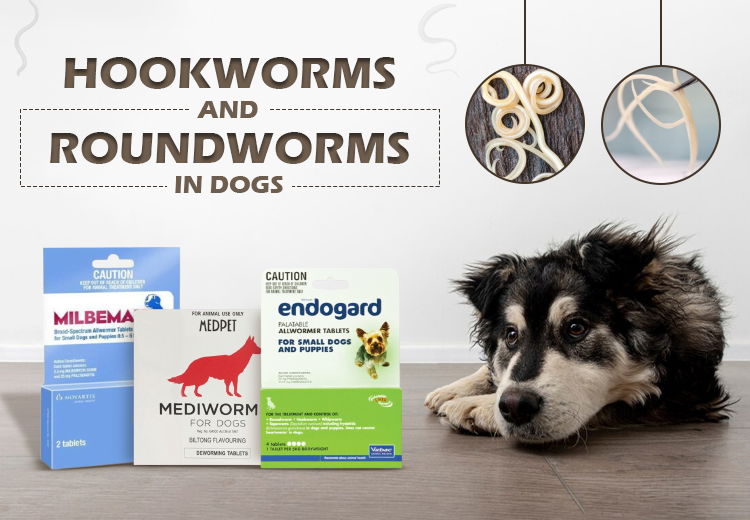Jun 19, 2024

Hookworms and roundworms are two of the most common intestinal parasites that live in the dog's intestines while feeding off their blood and other nutrients. It is important to eliminate and control these worms as they can cause a range of illnesses that can be fatal if not addressed in time. This blog provides detailed information on canine hookworms and roundworms along with signs and relevant treatment. Let's dive in.

Hookworms are short and stay attached to the walls of the intestines by hooking on the tissue walls. They live in the dog's digestive system and feed on their blood. They emit their eggs into the dog's digestive system which passes through the dog's feces in the environment causing infection to other pets.

Roundworms are white, long parasitic worms that live in the large intestine and grow up to 5 inches in length and feed on partially digested food. Roundworms can re-infect your dog as they can survive on hard surfaces and soils for years because their eggs are coated with a hard shell.
Here are some of the common signs that help you recognize gastrointestinal worm infection and help you provide your dogs with effective treatment:
There are different ways through which your dog gets intestinal parasites. Hookworms are transmitted when your dog hunts infected animals or ingests contaminated soil or grass.
Roundworms can be easily transmitted to puppies through infected mothers during pregnancy when the larvae pass through the placenta or after birth when feeding. They can also get infected by ingesting roundworm eggs from the environment.
The best way to protect your canines from intestinal worms such as hookworms and roundworms is by deworming them regularly and maintain sanitation. It is recommended to consult your vet for best treatment recommendations.
Here are some of the popular roundworms and hookworm treatments for dogs:
Worm coverage - Roundworms, whipworms, hookworms and tapeworms
Worm coverage - Roundworms, hookworms, whipworms and tapeworms
Worm coverage - Hookworms, roundworms, whipworms and tapeworms
Other than these, broad-spectrum treatments such as Simparica Trio, Nexgard Spectra and Interceptor Plus also protect dogs against roundworms and hookworm infections.
Gastrointestinal worms such as roundworms and hookworms are common but can be serious if not treated promptly. If you suspect your dog has a worm infection, talk to your vet to decide the course of treatment that best assists you with uplifting your canine's health and wellness.